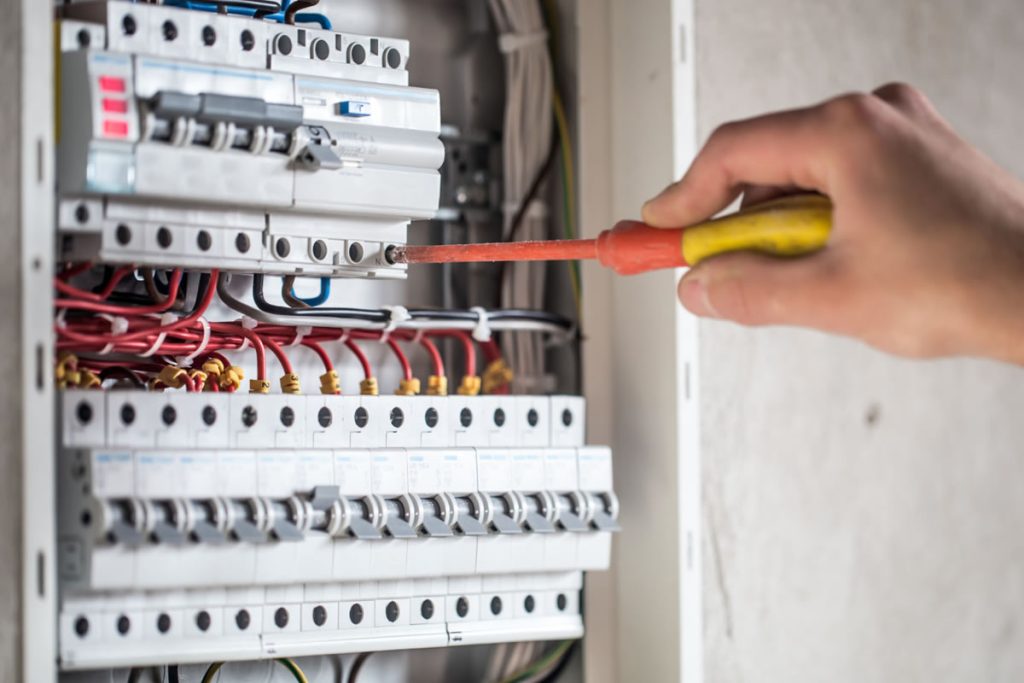Corrosion in Home Electrical Panels: What You Should Know

Water damage is never a good thing, and it’s even more alarming when electricity is involved. Unfortunately, electrical panels can be subject to moisture exposure, resulting in corrosion. It might be tempting to fix the problem yourself, especially if you’re handy around the house, but know that it’s best to get a residential electrical repair contractor to take care of it.
How It Happens
Poorly-sealed electric meters or damaged service entry cables can let in water when it rains. When the coating on older cables wears away, the insulating material and wires inside can also absorb water. Corrosion occurs when water exposure happens frequently enough, affecting even the panel box itself. In addition to direct leaks, moisture can also get into electrical panels when humidity is high in a home or when water seeps through masonry in service panels located in basements.
Identifying Moisture Damage
Along with rust, corrosion can also come in the form of a chalky white substance building up on screw terminals. This type of corrosion breaks down connections between the branch circuit wiring and the service cable wiring, resulting in increased circuit resistance. This generates heat, from which fires can eventually develop.
Safety First!
Surfaces that aren’t wet don’t guarantee protection from electrical hazards. Only licensed residential electricians will be able to safely assess the damage to your electrical panels, equipped with not only safety gear but professional knowledge gathered over the years as well. Are your circuit breakers tripping? Take that as a good sign! Circuit breakers with moisture damage may malfunction and fail to trip, even when electrical overloads occur. This can lead to overheating and electrical arc flashes, damaging not just your home’s electrical system but causing potential b
